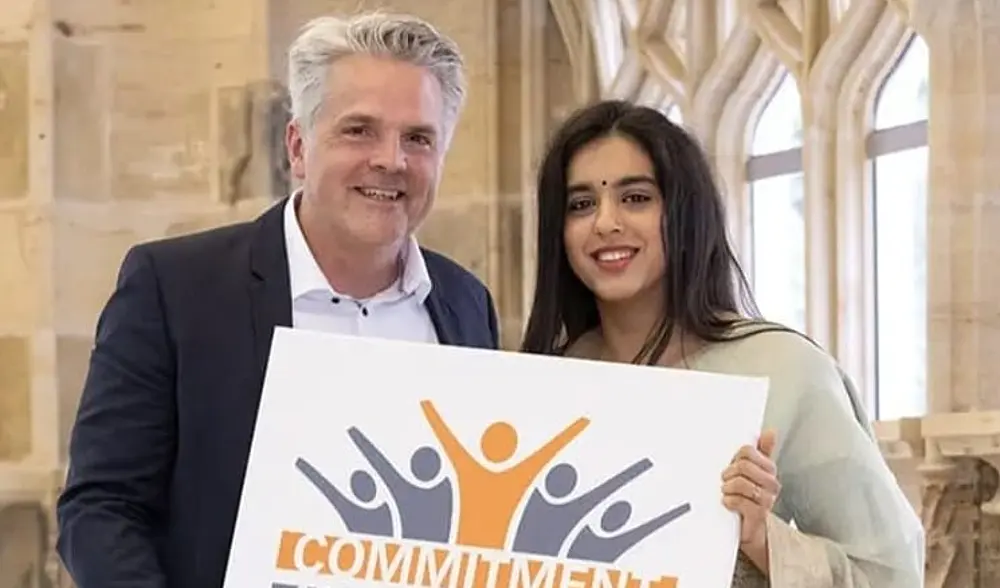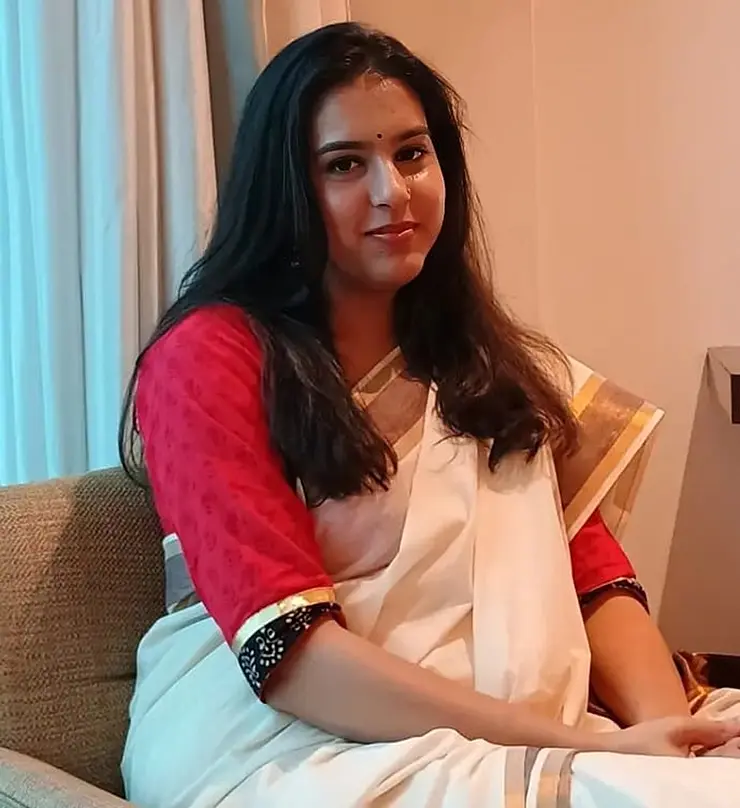Raising my voice for India’s children: Halla Bol and the Commitment Award at the Willy Brandt School

When I joined the Willy Brandt School of Public Policy, I carried an idea that had been growing silently inside me for years—an idea rooted in anger, empathy, and a deep sense of responsibility. In India, conversations related to sexual harassment, particularly involving children, are suppressed in families, schools, and public spaces. Children are taught to be obedient, quiet, and respectful, but rarely taught to recognise discomfort, assert boundaries, or report unsafe situations. During my time working in the development sector in India, I came across countless young girls and boys who had experienced harassment yet lacked the language or confidence to articulate what had happened. Many did not even know that they had the right to say “no,” because the adults around them avoided the topic altogether. This silence troubled me deeply. It made me wonder how a society that claims to protect its children can also normalize their silence. That question eventually grew into the foundation of my project—Halla Bol.
Before starting my master’s degree, I conducted a short pilot in East Singhbhum, a district in Jharkhand. The goal was simple: talk openly with children about personal safety, boundaries, consent, and how to seek help. The sessions used storytelling, simple games, and conversations. At first, the hesitation in the classroom was palpable. Students were not used to talking about these topics, and neither were the teachers. Slowly, however, the atmosphere shifted. Children began sharing experiences, questions, fears, and moments when they had felt unsafe. A seventh-grade girl came to me after a session and said, “No one has ever told us that we are allowed to say no. I didn’t know I could speak up.” That single sentence captured everything the project was trying to achieve. By the end of the three-week pilot, teachers were requesting monthly sessions, principals wanted training material, and children were actively asking for more discussions. The schools recognised the need, and the students embraced it.
The pilot made one thing very clear: the absence of awareness enables abuse. Children are vulnerable not only because abuse happens, but because they do not have the knowledge or support to recognise it or speak about it. Instead of reacting after the harm is done, I wanted to work on prevention. That is how Halla Bol—meaning “Raise Your Voice”—became a structured social enterprise with a clear mission: preventing sexual harassment by developing child-friendly educational content and providing accessible counselling support to children aged three to eighteen. Halla Bol aims to work directly with schools, state education departments, and teachers to integrate the content into regular school curricula, ensuring that learning about personal safety becomes as routine as learning mathematics or science. The educational content is designed with experts—psychologists, counsellors, and educators—so that it is age-appropriate and emotionally supportive. Furthermore, all content will be available free of cost, ensuring equitable access, while counselling services will be provided at low or no cost to children who seek help.
Arriving at the Brandt School strengthened this vision in ways I had not imagined. Through my coursework in social entrepreneurship, I learned how to transform an idea into a sustainable model. I gained skills that helped me build a theory of change, refine the operating model, plan partnerships, and design long-term strategies. The faculty pushed me to think beyond passion and develop measurable impact indicators. When I pitched Halla Bol for the Commitment Award, I felt a mix of hope and fear. The topic is considered “too sensitive” by many institutions and funders in India, which made me wonder whether it would be viewed as too ambitious. Winning the Commitment Award was a turning point. It was more than funding; it was validation. It was a powerful message that difficult conversations deserve to be supported, not avoided. The award allows me to formalise the project, develop structured training content, build the first set of digital resources, and establish the initial counselling network for children. It also helped me begin formal discussions in Jharkhand to pilot the program in government schools through structured partnerships.
Through this journey, one student’s story continues to guide me. During the pilot, a girl—whom I will call Priya—participated enthusiastically in every session. For the first time, she heard that her body belonged to her, that discomfort was valid, and that seeking help was not shameful. Several days later, she approached a teacher and shared a personal experience she had never spoken about. With her consent, the teacher contacted me, and I connected Priya with a counsellor. Over weeks, she slowly regained confidence and began to heal. Her courage reminded me that awareness does not just change knowledge—it changes lives.
The ambition is national. India has more than 436 million children. The problem is enormous, but so is the potential for impact. With support from state governments, NGOs, and corporate social responsibility initiatives, Halla Bol aims to become a pan-India program, reaching millions of children over the next few years. Awareness creates empowered individuals; empowered individuals create safer societies.
The Commitment Award not only funded the first concrete steps of the project, but it also gave me something far greater — confidence. It reminded me that meaningful change often begins with discomfort and continues with persistence. In schools, when we normalise conversations about personal safety, we do more than prevent harm — we give children agency. Children do not need adults to speak for them; they need adults to create spaces where speaking is allowed. Halla Bol is my way of creating that space, and every time a child finds the courage to speak up, the silence that once protected abuse begins to disappear.
~ The views represented in this blog post do not necessarily represent those of the Brandt School. ~

About the Author
I'm Yashaswini Nand, a second year Master of Public Policy student at the Willy Brandt School of Public Policy, University of Erfurt. I completed my bachelors in sociology from Sophia College for Women, Mumbai, and then worked as a Gandhi Fellow (Batch 15) with Piramal Foundation in East Singhbhum District in Jharkhand. I have a keen interest in social entrepreneurship and want to develop my Commitment Award project even further, in India and even globally.